Improving the living standards of communities through Farmer Managed Natural Regeneration
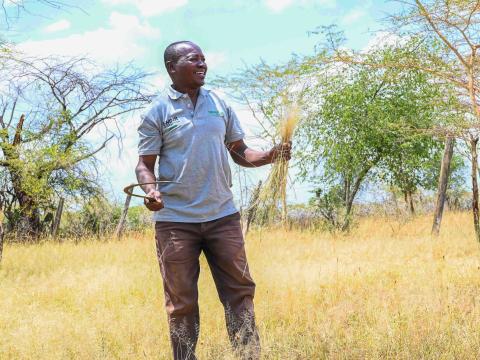
By Hellen Owuor, Communications Specialist (CRIFSUP), World Vision Kenya
Zakayo Kertich, a 64-year-old lead farmer from Baringo County's Uriswe village, has been using the Farmer Managed Natural Regeneration (FMNR) approach for just over a year, and he attests to its amazing advantages.
"I set aside one acre of land after receiving FMNR training from World Vision. We were taught that when pruning, one must only use sharp tools and prune in an upward motion,” explains Zakayo.
Zakayo is among the 1,000 farmers selected and trained on FMNR across Baringo, Nakuru, West Pokot and Elgeyo Marakwet counties through World Vision’s Central Rift Farmer Managed Natural Regeneration Scale-Up Project (CRIFSUP). The project is funded by the Australian Department of Foreign Affairs and Trade (DFAT).
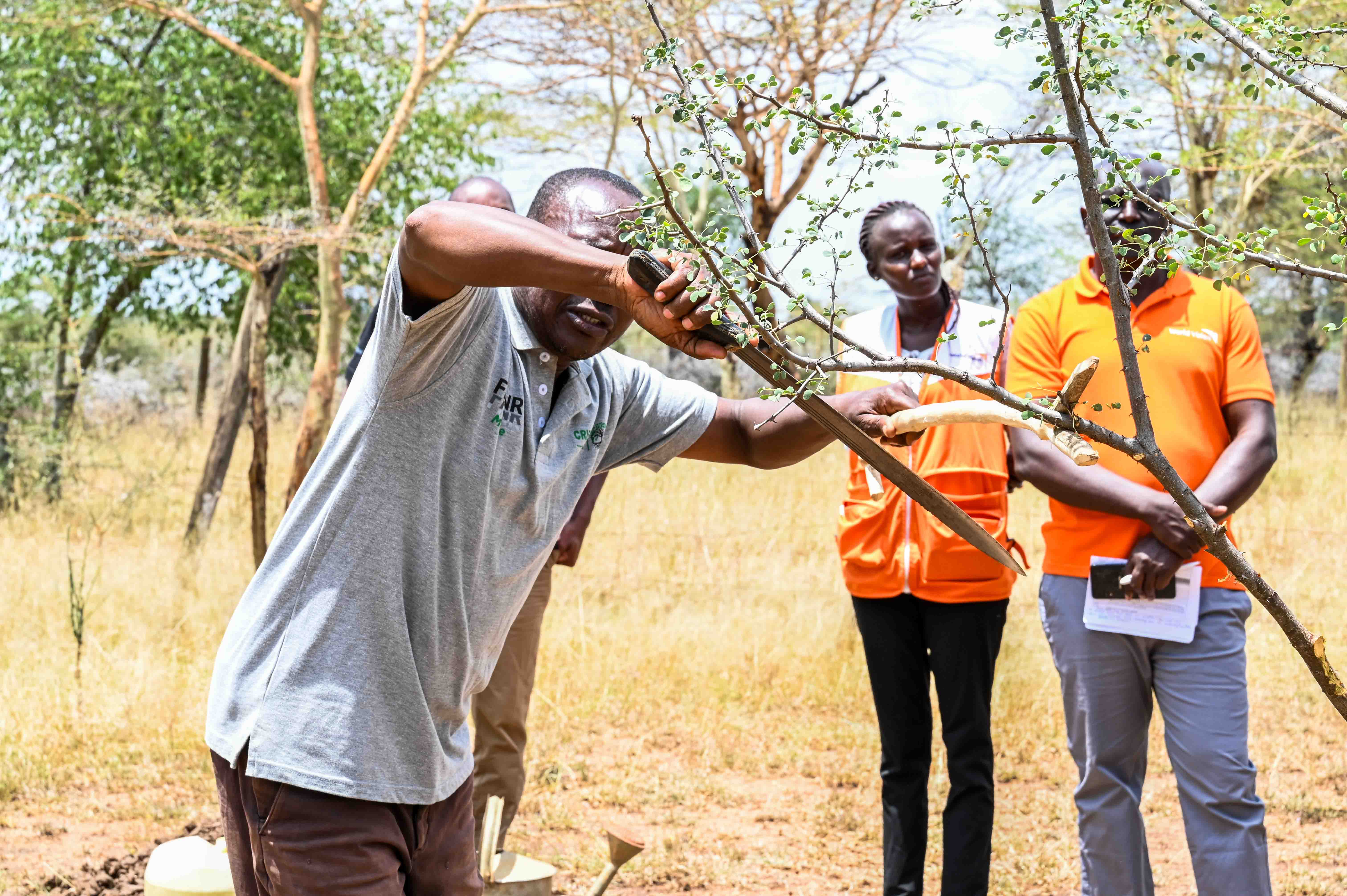
“We train farmers to prune trees using a specific technique. That is trimming in an upward direction from beneath the branch. Improper pruning may wound and cause an infection to the tree thereby inhibiting its growth,” according to Triza Kigen, Project Officer and Agricultural Specialist at CRIFSUP.
Zakayo's wife, Grace gathers firewood to use in the kitchen to cook after he prunes the trees. He claims that although they could originally walk for long distances to fetch firewood, they have never run out of firewood in their homestead since they began the FMNR practice. Zakayo boasts over his healthy physique, delightfully crediting his wife's cuisine for it.
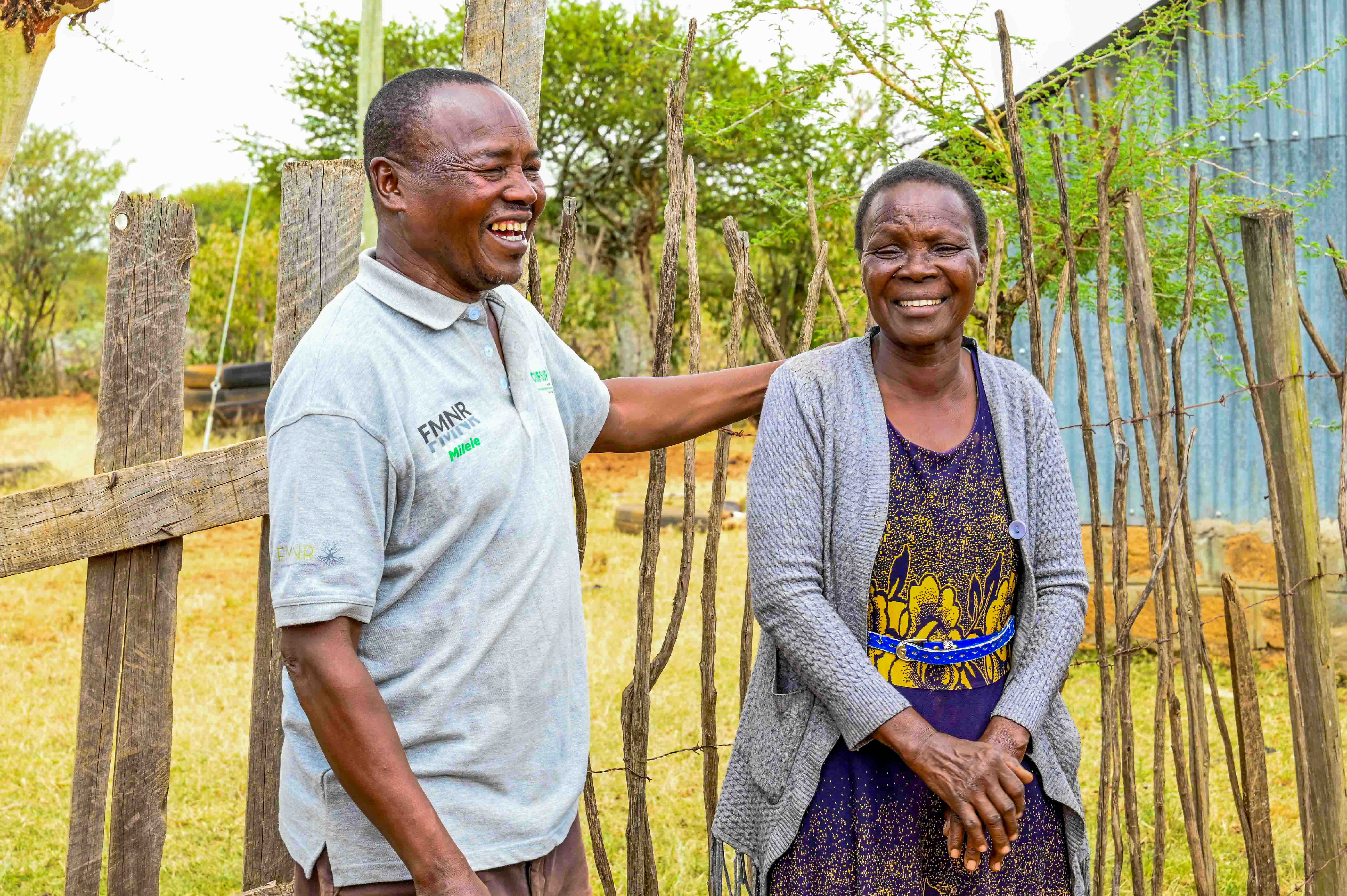
“Nowadays we eat earlier because firewood is readily available. Grace also uses an improved cook stove that is faster and more efficient at preparing meals,” Zakayo states.
“It is imperative for the project to provide resilient livelihood options that are sustainable. Grace today uses an improved energy-efficient cook stove, which is one of these options. Compared to the traditional three-stone cooking fire, this cook stove produces less smoke and uses way less firewood. As a result, families can save the money they would have spent on buying firewood. Additionally, this will reduce the number of respiratory diseases that women get from breathing in a lot of smoke when cooking,” explains Daniel Makana, Project Manager, CRIFSUP.
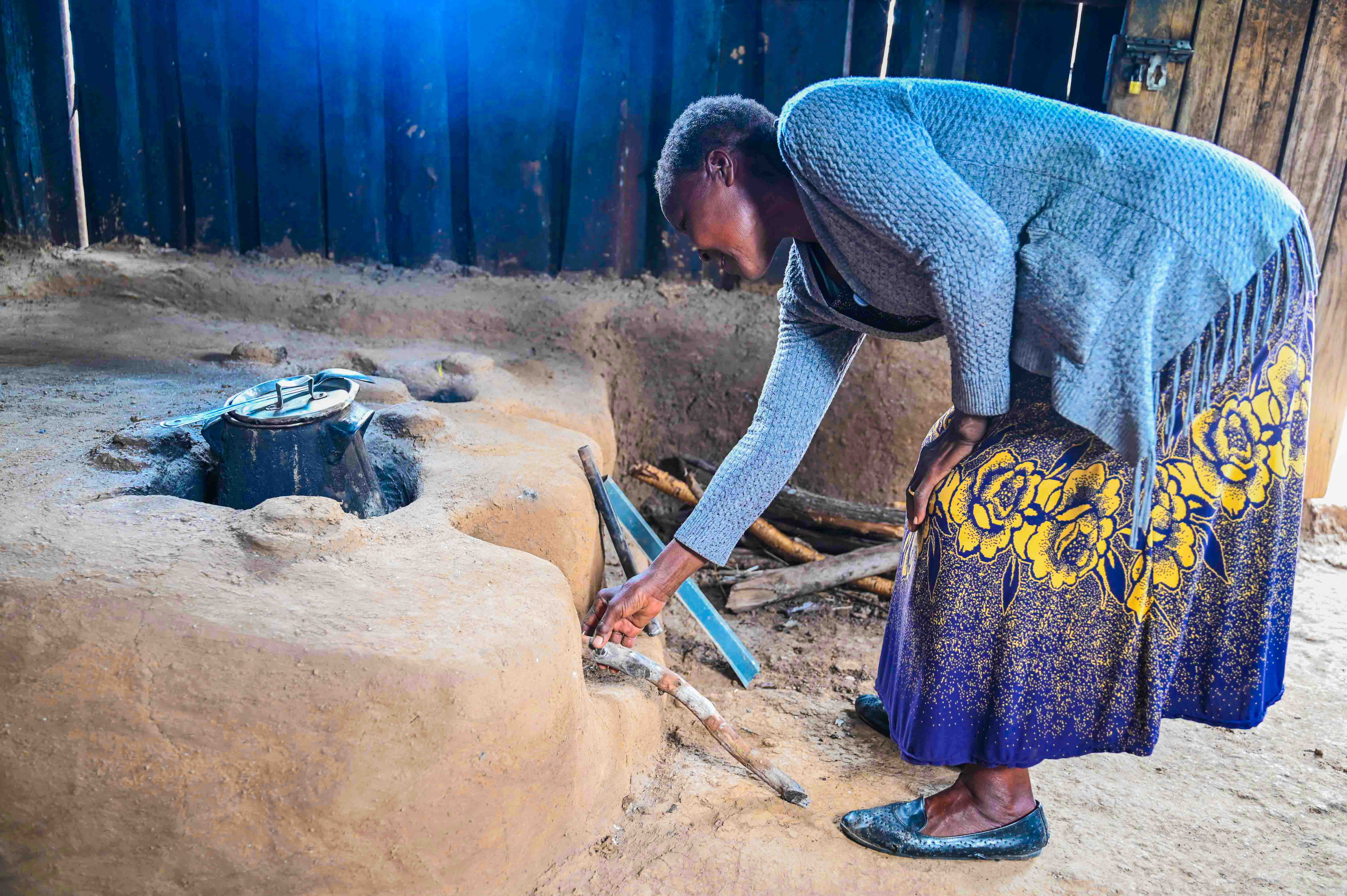
Grace says that she no longer coughs as much because of the excess smoke that the traditional three-stone stove emitted. “Since we started using this improved cook stove, my wife's respiratory health has improved, therefore I'm glad we learnt about this technology,” Zakayo affirms.
Zakayo's family has benefited more from implementing FMNR than only firewood, particularly during the dry season. When his cattle get weak and malnourished, they can get medicine from the branches of the regenerated Acacia Seyal trees on his farmland.
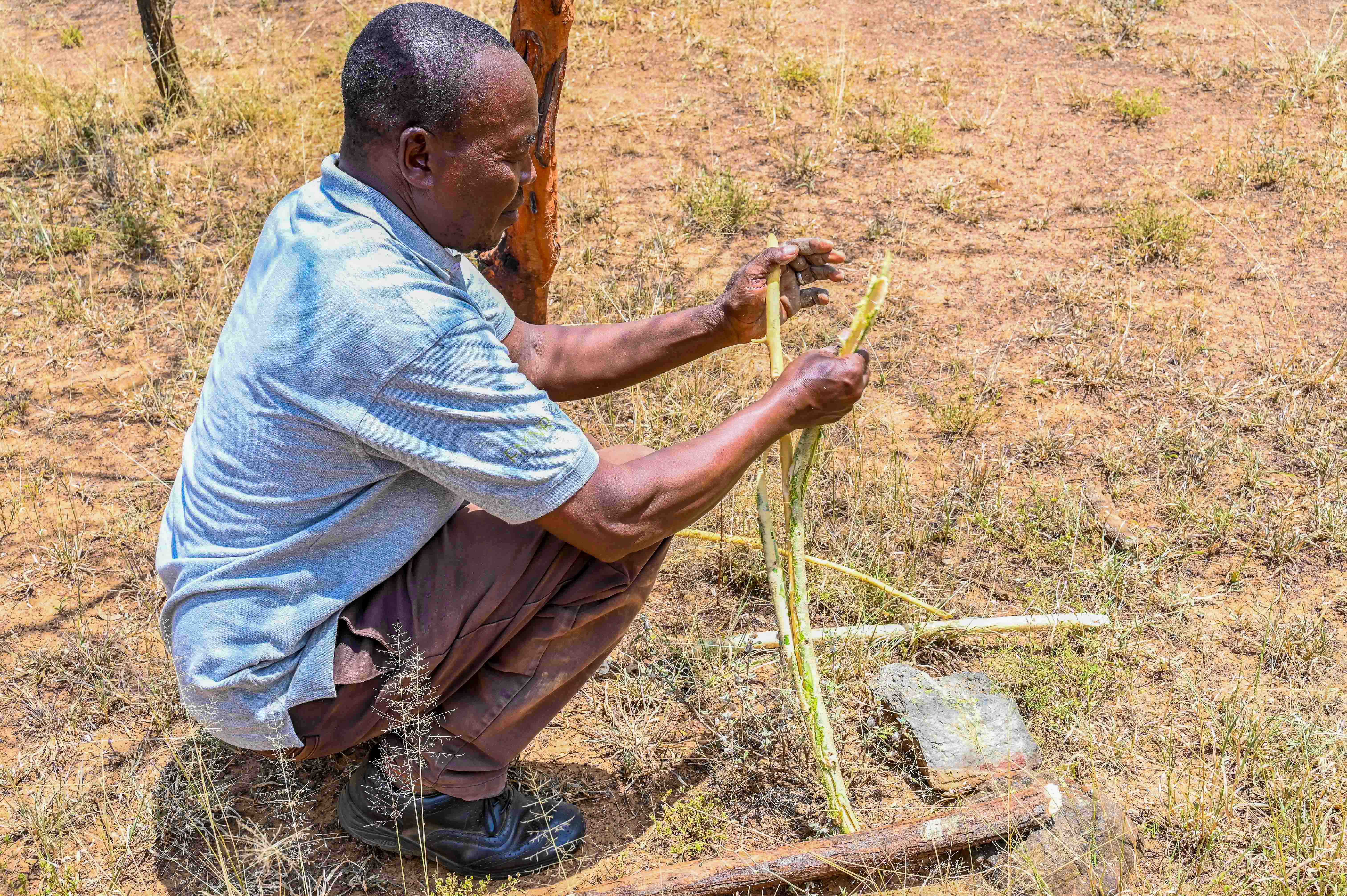
Land that was once a thick bush devoid of grass, has been transformed to a vast expanse of native grass and regenerating trees after Zakayo trimmed and enclosed the area. The presence of grass as a cover crop now prevents soil erosion.
With the increased pasture production, Zakayo decided to venture into sheep farming in order to supplement his income. He charges 9,000 KES for a sheep. His cattle, which initially produced 3 litres of milk a day, are now producing 9 litres, demonstrating the benefits of more pasture.
Zakayo has also benefited from the four beehives that World Vision gave him. From his first harvest he got seven litres of honey. The avid farmer made 5,000 KES by selling five litres of the yield. Owing to the medicinal and nutritional benefits of honey, he set aside two litres from the harvest for his family’s consumption.
Trees give bees shade and nectar when they bloom creating an ideal habitat for bees to flourish; as a result, Zakayo can expect a more fruitful harvest during the wet season.
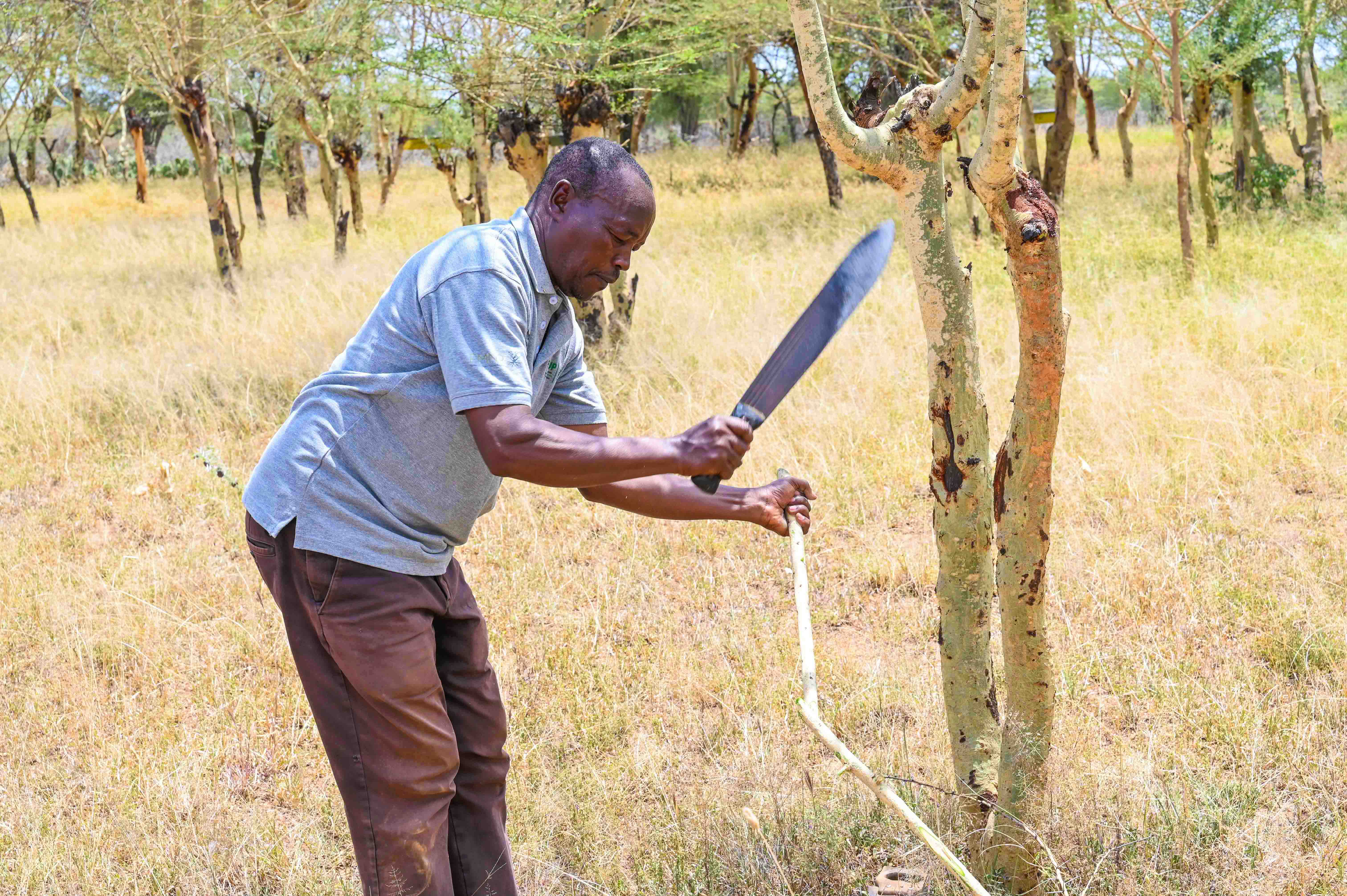
Zakayo is actively disseminating knowledge about the advantages of FMNR. Five farmers that he has trained are currently implementing the approach.
“I have gained respect and admiration from the community and I attribute this to FMNR knowledge and practice. FMNR is the right way to go to improve the living standards for our children and families,”Zakayo utters with a grin.
Zakayo is one of the many lead farmers whose lives are changing as a result of applying FMNR, a low-cost tree regeneration technique with social, economic, and environmental impacts. World Vision is still working to help communities become more resilient to shocks brought on by climate change.